At the end of 2018, my wife Maša and I made the tough decision to move in with her parents so we could save money for our next big adventure.
We rented a two-bedroom townhouse in a central location for three years. We were in a relatively new area, with the property itself being about six years old.
The property’s layout was reasonably straightforward, sitting at two stories with lots of open space, natural light, large bedrooms and a carport.
Being suckers for a minimalist aesthetic, our colour palette included white, birch and grey. We had minimal things in the townhouse, as friends would often visit and see that we didn’t have much.
At least on the surface.
Then we started moving. We thought we could knock out our move in a couple of carloads, easy.
We ended up making multiple trips to the tip, and we needed quite a bit more than a few carloads to clear our things. What’s worse is that we sold most of our furniture and appliances as we were planning at the time to move overseas.
I was devastated to see all of the things we had accumulated. Where the heck did all of this stuff come from? We had a tidy minimalist home, but somehow we had way more than we thought.
As I reflect on this experience, I start to see cracks in our system. And I can attribute all of this to one thing. Storage.
Between our closets, tall-boy, the under-stair attic, and shed, we had buried away a whole bunch of things that we no longer needed.
Then it got me thinking. What if we didn’t have storage? Would our approach to managing our possessions be different?
I’ve seen people who live in tiny apartments in large cities that don’t have space for any storage. Clothes are out on racks, and everything is out in the open. As a minimalist, there’s nowhere to go.
But let’s pull it back for a moment here.
In a previous life, I sold properties for a living.
I constantly evaluated the price of homes and talked about features and benefits with potential buyers.
Time and time again, storage would come up in conversation.
“Oh, this bedroom doesn’t have a walk-in wardrobe.”
“I need a double car garage to build my man-cave.”
“I love the fact that there’s a basement.”
Looking back, it’s interesting to see how vital storage is for many of us. But the thought behind wanting more storage implies a couple of things.
We want insurance
A driver’s excessive consumption is a what-ifs. What if I move into this property and don’t have enough space for my things? What if I move in and we need more space for our future kid’s things? Or what am I going to do with my clothes if they don’t fit in the closet?
Not having enough storage is a risk. Because if we run out of space, we start to create clutter, and things end up being in areas of the house that they shouldn’t be.
Ironically though, we rarely ask the question, do I need all of the things that I currently possess? If I was to pare down, could I make this work?
We’re influenced by design
Another reason why storage is so important to us is that that’s what we’re told.
Brands like Kikki.K have a business dedicated to providing creative and pretty storage solutions for your stationery.
We’re told that good architecture finds creative ways to create functional storage for our things.
We were influenced by this when we signed a lease at our previous property. We welcome the idea of storage.
And it makes sense, though. Whenever we look at a new space, we’re constantly visualising where we would put our things. Every bit of extra storage helps!
The problem with storage
One part of minimalism is about creating more space.
Space = freedom, peace and intentionality.
Seeing clear benchtops, tables, dressers, vanities, beds, and every type of surface is liberating and, frankly, beautiful.
However, creating space on surfaces is somewhat easy to do if you have enough storage. You merely move clutter from an open space to a hidden space.
The other side of minimalism is owning less. This has a different kind of feeling to space. You physically and mentally feel lighter as you indeed have only what is essential to you and nothing more.
There’s a level of conviction to the way you live and how you approach bringing new things into your life. You become ruthless. But in a good way.
More space and fewer things are magical. That’s why I fell in love with minimalism.
But to achieve — no, to feel, minimalism, you need to implement both sides of the equation. It’s one thing to appear like you have fewer things and another to actually have fewer things.
That’s the trap we fell into with storage. We appeared to have only what we needed, but storage revealed that we were full of shit.
And yes, it hurts. But that’s okay. We’re super aware of the trap of storage, and we will be more mindful of it when we look for our next property.
Heck, we might even experiment living somewhere with limited storage. If we do end up with storage, we’ll be sure to review it at least quarterly to ensure it’s not becoming a graveyard of things we don’t need.
Quick note, we ran an online store for two years, and we held inventory in our little townhouse. This is where storage was handy because we had foldable tables and marquees for market stalls, shelves of products and closets to store our packaging.
But honestly, running a warehouse from home, while cost-effective, was a burden for us. No matter how tidy you try to keep your home, there’s product and order papers and packaging lying around, creating clutter.
If we were to do it again, we’d run the warehouse in a separate location to our home.
Suggested Read => Best Minimalist Dressers for Your Home
You know what I’m about to say
So hopefully, by now, you’re open to the idea that storage can be a problem.
My question to you is, have you really done the work of living with less, or are you just meeting those standards on the surface (both figuratively and literally)?
You need to do what Maša and I should have done years ago. Pull everything out of your closets, attics, garages, sheds, basements, roofs, stationery boxes, kitchen cupboards; you name it.
Pull your stuff out of storage and audit the value of those things.
Reflect on this exercise.
Did you find that you had to get rid of a whole bunch of things, or are your storage spaces treated with the same intentionality as your surfaces?
This activity is easily overlooked. After all, if it’s out of sight, it’s out of mind.
Please, please, please, challenge yourself to overcome your resistance to do the work of minimalism. The things you can’t see are just as important as the things you can see.
What are your thoughts on storage?
Have you fallen for the trap of storage in your minimalist journey? What will you do moving forward to address storage?
I would love to hear about your experiences in the comments below.
PS – Special shoutout to my friend Christian who gave me this idea in a casual conversation at work.
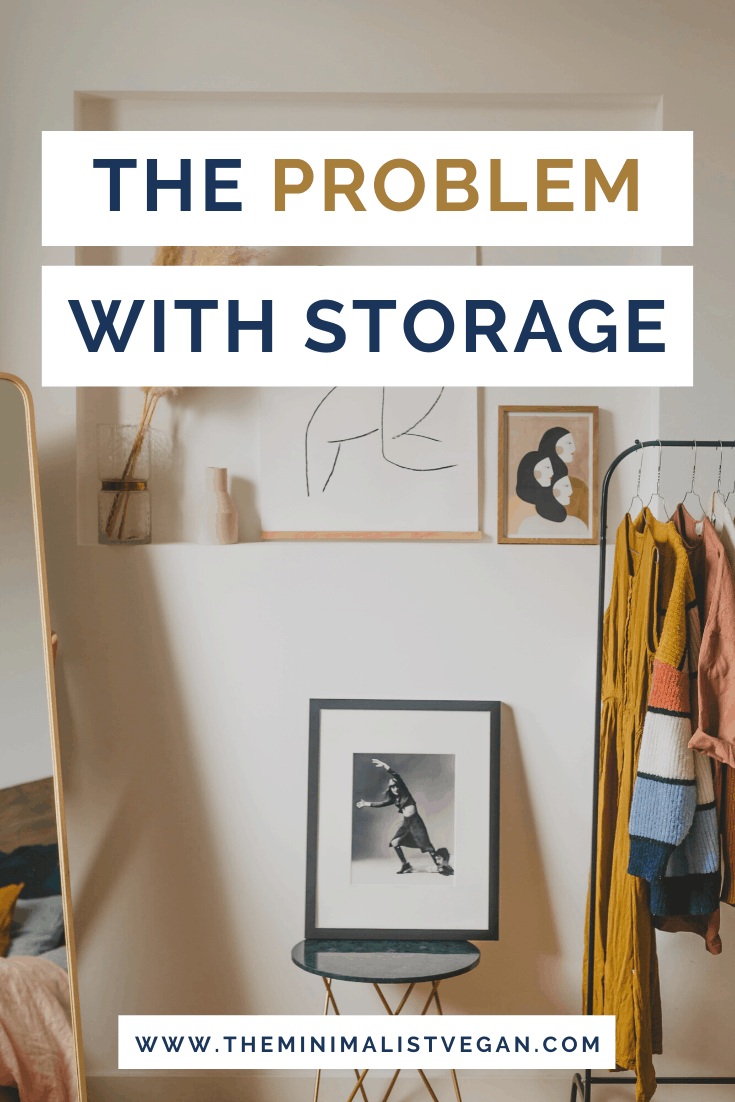

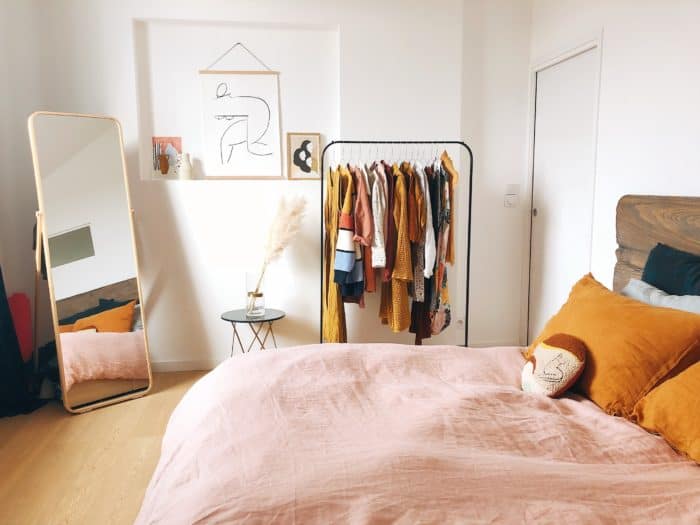
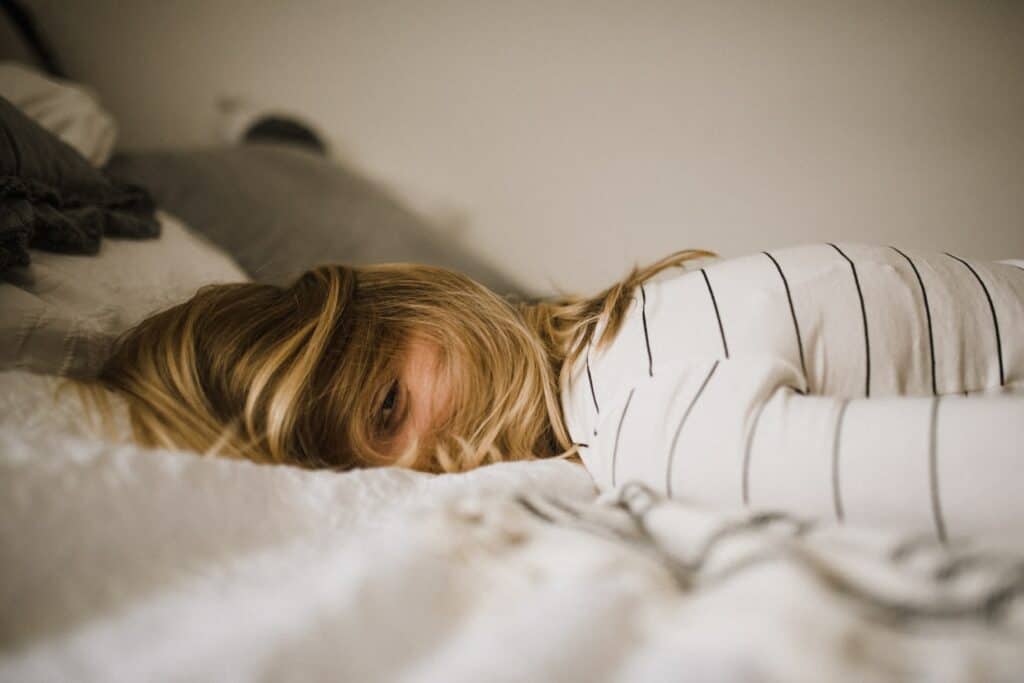
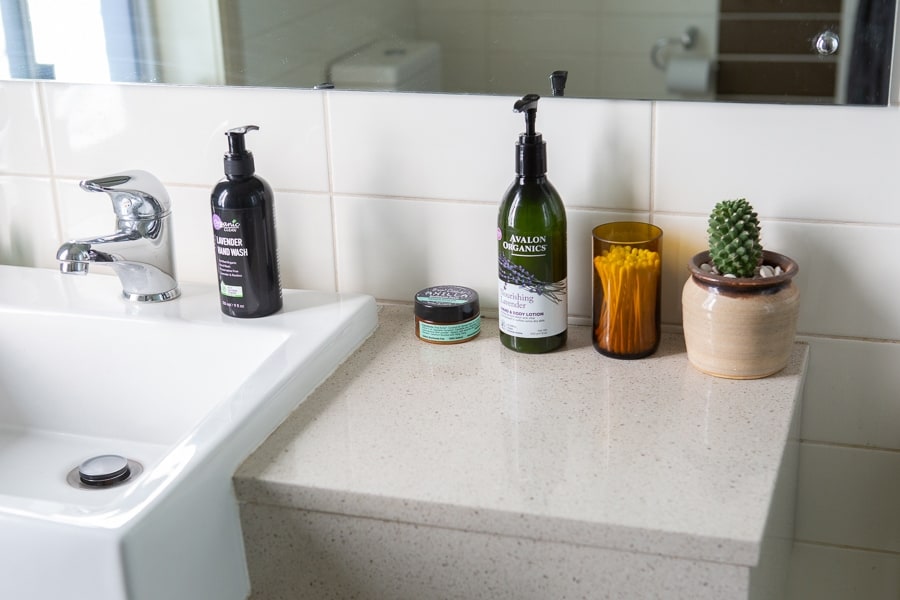
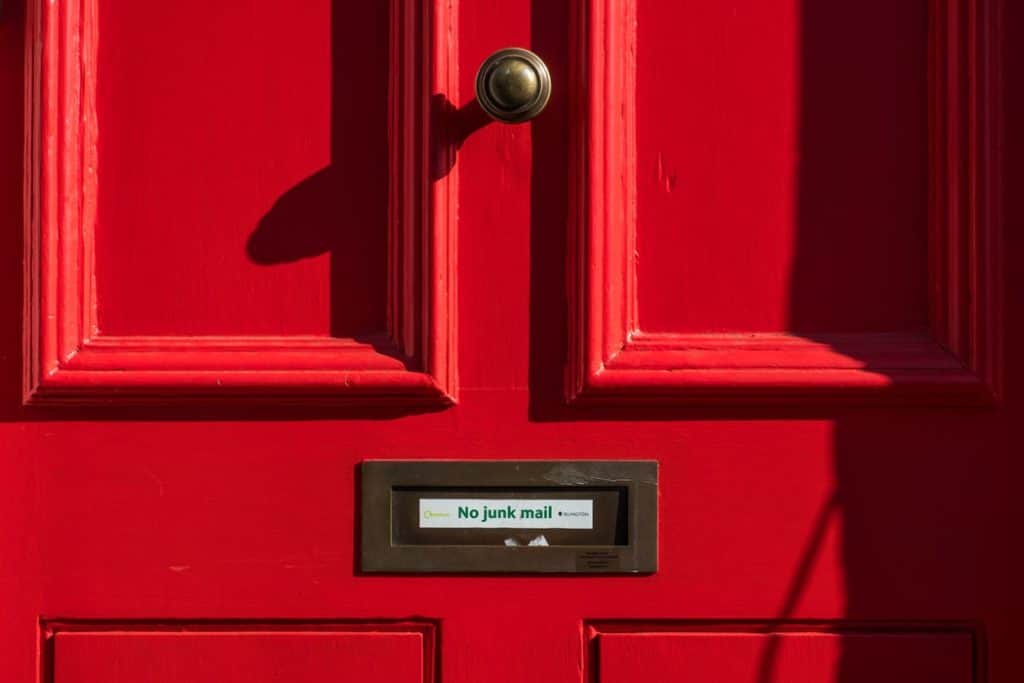
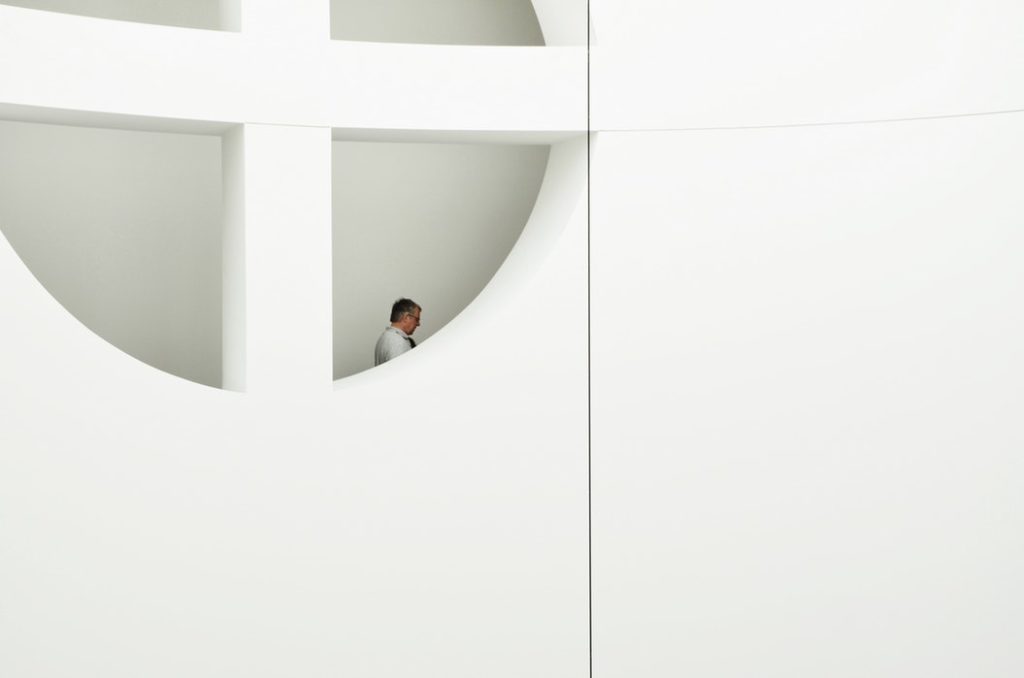
You both are delightful to read and listen to….as well as helpful. I love your willingness to be vulnerable….you sound like you’re talking to a good friend you trust.
As a 76 year old, I am still influenced by:
parents who lived through the Great Depression….save everything!,
the value of information…keep books, pictures, ALL,
the present availability of goods,…China, Amazon.
My husband’s worse….he’s a scientist and metal sculptor….surly he’ll rue the day he threw out a scrap of anything.
Yet…don’t want to leave this for my kids. So, you’re tutoring a strong old woman. Sounds good to me.
Thanks, Sandy! We really appreciate your kind words.
Wow, what a strong influence indeed! Kudos to you for being so self-aware and fighting for growth.
This is so important for me. I’m regularly auditing what I have in storage areas to ensure I really still need those items. It can be quite a trap. I love your honesty. I’m also cleaning up my little publishing business that I’ve been running for the past few years. As someone who is getting more and more aligned with minimalism, I agree that doing it from home isn’t comfortable or ideal. I’m also approaching future business endeavours from the minimalism perspective I’m applying to my personal life. Can’t wait to read more from your blog and listen to your podcast. Thank you for everything you are doing with your work here.
Hi, Kathy. It’s so lovely to see your comment here. Running a minimalist and simple business is also something we’re super intrigued by. As you know, “wanting and pursuing more” often gets the best of entrepreneurs. Looking forward to connecting with you more 🙂 Michael
Good point. We’re about to move into a place with much less storage than what we’ve been used to. At first I thought it might be a problem but it has forced me to evaluate how much I really needed all of these random items that we were storing. There were lots of things I had forgotten about because they had been in the back of cupboards for years. Now I’m taking only things I know I really want with me, as there’s no room for unnecessary things. & I’ve realised that’s a good thing!
Nice one Kathleen! Moving is always a fantastic opportunity to evaluate your things. All the best with the move!
Storage has been creeping into my thoughts more and more recently. I pretty much live in a room, and have access to a kitchen and bathroom. I have a divan bed but go through phases of wanting one with storage, and then have the same thoughts about why I need the storage and debate as to whether I should just have another purge and see if I then still need the storage. This post has given me the push to do that purge today so I can see if I can get any closer to my dream of clear surfaces and clutter free corners.
Have a lovely week.
Hi, Josey sounds like this post came at a good time for you. Good on you for holding steady and doing the work of evaluating your things, instead of getting a bed with more storage. You can do this! Thank you. I hope you have a fantastic week!
Thank you for the post Michael. I found that the smaller space you live in, the less stuff you will accumulate. Also the more frequently you move, the more you realize what a burden stuff is. The worst thing you could do with clutter is put it in storage. It breaks my heart to know there are storage facilities that are on cleared land that have constant air conditioning and heating for stuff people are paying 50 to 100 dollars per month and probably dont remember what is in there. So to prevent that from happening I like to go through closets and donate or sell anything I haven’t used in a year and definitely won’t use within the next month.
Dominic, love your point about the impact of living in smaller spaces and being on the move. I suppose the challenge is maintaining the discipline to recognise clutter even when you have space and storage to have more. The concept of unutilised space in a home is foreign to many of us. Thank you for all of the work that you do.
A really interesting read Michael, and something that hadn’t really occurred to me until now but a change in storage availability did actually help me at the start of my minimalism journey. I moved home a year ago from an old Victorian terrace in Cambridge, UK, to a more modern new build in an equally picturesque market town a few miles out – one of the biggest drawbacks at the time was the much more limited storage space and it was a source of anxiety for me at the time but we loved the house so much that we went for it. Now in hindsight it was this situation that led me and my husband to successfully clear out a lot of crap – I remember having a big clear out when we were packing up our old house and then once in our new home we had to become even more ruthless as there just wasn’t the space. But it made us really think about the value of what we wanted to keep, and with storage being more precious it became quite easy to get rid of stuff that didn’t warrant taking up that space. Thanks for another interesting and enlightening angle on minimalism!
Hi Gemma, thanks for sharing. I can almost picture how you must have felt when you were trying to make this new property work. Storage is a safety net, but I’m glad you guys went through that process. Hindsight is 20/20. What a journey!
You’re most welcome (even though I really can’t remember what triggered and how the conversation went) 😉
Can’t wait to go out for a drink with you and have deep dive into some of those things 🙂
Well lucky one of us remembered ?
For sure, we just need to start messaging each other, and it will happen.
As I am of the so called older generation we were anything but minimalist.
In the late 40’s and 50’s, Australia had many post war folk who had lost everything. They built their lives from nothing, and perhaps overcompensated with endless items of apparent beauty.
If you guys have accumulated a lot during your lifetime, imagine how much these people accumulated over 50 years.
Then again, we all at some time in life can be the recipient of these items. The items you are left by family or friends given with love believing you will enjoy, and take care.
Apart from my renovations that required exposing every item, the follow on visits to charity stalls was a wake up call. Even charity stalls are selective with what they will and won’t take.
Therefore, the add on comment is what do you do with those items that have significance?
You pass special things on to those that can use them or enjoy them if they want them.
As you say be ruthless when your heart is not letting the head rule, and that is a must.
My mantra is if I can’t use it or eat it then its of no use.
I have limited space on floating shelves to house that which is the most precious to me. Being able to look at these items is somewhat endearing, as it represents the best memories of a life, and from generations before me.
My thought reading all your views over time, is that its long over due for a time for a minimalist lifestyle.
With technology producing so much waste its mortifying.
Shop content should be the next target as apart from good usable items, the amount of rubbish available, especially for children is unrelenting antiquated plastics, and should be outlawed.
Perhaps the Scandinavian way is the way to go where they prefer streamlined, clean and uncluttered.
Good on you both for doing what you do.
Ultimately its mostly temporary unnecessary clutter the way I see it today, and the world cannot sustain this type of existence. Good luck.
Hi Chris, thank you for taking the time to share your experience.
I could only imagine what consumption habits would’ve been like in the ’40s and ’50s. But you’re right. Clutter creeps up on all of us. And in the absence of a task that exposes your hidden clutter, you have to be even more diligent in reviewing your storage habits.
Regarding your question about items of significance—we run with a sentimental box. Establishing a destination for things that mean a lot to you do a couple of things:
It gives you a goal as the box only has so much space.
It forces you to ask yourself what items are significant in your life…today. For example, my box has shrunk over the years as I grow and develop. What I saw as sentimental four years ago, doesn’t have the same meaning now.
The other thing to consider is whether a photo representing the moment instead of a physical item is adequate for your nostalgia?
Love the way you’re thinking Chris! You’re being super intentional, and that’s what it’s all about.
Michael